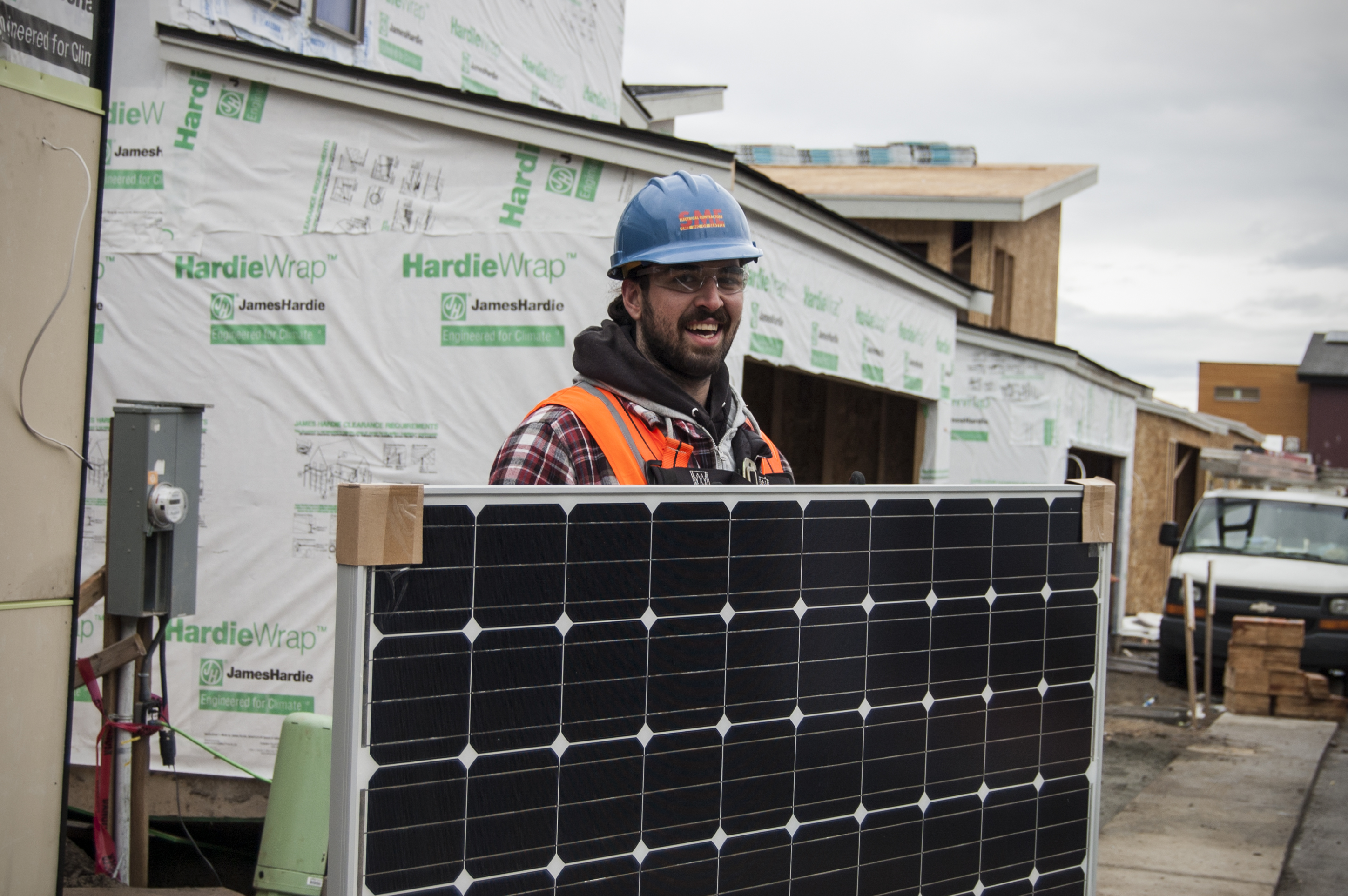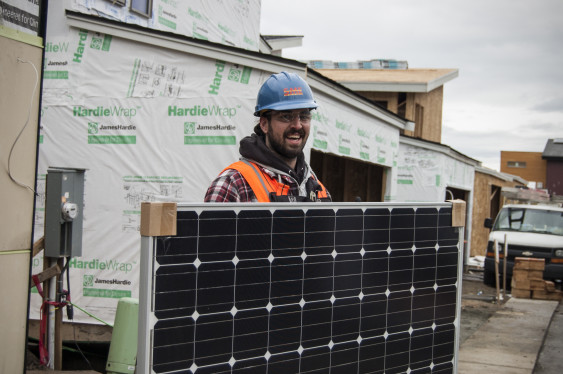Evergreen State voters have some big decisions to make by November 6, including a headline-grabbing contest over carbon fees. But many voters in the state can scan down the ballots—way down—to find races for their local Public Utility District commissioners. These races, scattered in districts around the state, rarely garner headlines—or any notice at all—but PUDs can have an outsized impact on the shape of a state’s energy and climate commitments.
Bidding for a Public Utility District (PUD) commissioner seat may seem like a two-bit race (and in fact, they are often won by candidates spending only a few hundred dollars). But when they have the right leadership, PUDs can reduce climate pollution, support transportation system electrification, champion protections for ratepayers, and promote green economies at the local level.
But what are they? And what can they really accomplish?
When they have the right leadership, PUDs can reduce climate pollution, support transportation system electrification, champion protections for ratepayers, and promote green economies at the local level.
In a state where liberal Seattle often dominates political conversations, it’s easy to forget that, in some ways, rural counties were Washington’s first progressive powerhouses. Populist agricultural organizations in 1930 helped pass Washington’s first initiative, giving citizens the right to form Public Utility Districts, a new form of small government charged with providing infrastructure services like electricity, telecommunications, and water and sewer. In the years following the initiative, twenty-eight PUDs sprung up across the state.
The most recent PUD expansion in 2008 serves as an illustration of the importance of these little-understood district governments. Voters in Jefferson County approved a ballot initiative with 53 percent support to authorize their water and sewer PUD to wrest control of providing electricity from Puget Sound Energy, the largest private utility in the state. The move created 39 jobs and $11 million in wages for the area, and effectively shifted the district’s power mix too from 60 percent fossil fuels to just 2 percent.
By nature, PUDs are intensely local. In theory, they can be highly responsive to community interests. A locally-elected board of commissioners charged with setting rates and making strategic decisions holds open meetings to discuss plans and solicits public input. As a result, some PUDs became leaders in implementing innovative new projects.
PUDs already benefit from an extraordinarily clean power portfolio, largely because of their legacy hydropower. On average PUDs are 95 percent carbon-free, thanks to favorable rates from the Bonneville Power Association. Like other utilities, PUDs can sometimes be moribund, but there are good examples across Washington of commissioners leading positive change at the local level.
Consider the contrast to investor-owned utilities, like Puget Sound Energy. While PSE lobbied at the state legislature against favorable terms for rooftop solar, PUDs tended to embrace it alongside energy efficiency programs. From Mason to Snohomish counties, PUDs pushed to install community solar projects to increase access to renewable energy. Meanwhile, Klickitat PUD is selling renewable natural gas from its landfill biodigester, helping to displace the use of fossil fuels. A commissioner-directed project in Mason County PUD #3 is investing in innovative fiber broadband to serve rural neighborhoods. And Clark County’s commissioners voted to increase the cap on net metering for home solar, allowing for more installations where other PUDs have reached their cap.
Plus, several PUDs east of the Cascade Mountains, in Benton, Franklin, and Kittitas counties are partnering to build out electric vehicle infrastructure. It’s work that benefits the entire region by reducing range anxiety for electric vehicle owners traveling across the state.
PUDs also have an important role in promoting and adjusting to transportation electrification, which matters because transportation accounts for the largest share of Washington’s greenhouse gas emissions. As adoption rates for electric vehicles increase, PUDs will be responsible for supplying more power and setting rates for charging stations. PUDs have largely relied on hydropower to meet demand, but as electricity demand from transportation increases, PUDs will need to make strategic decisions on how to invest in load growth and whether to increase investment in renewable energy and energy storage.
If you live in a Public Utility District, Election Day is a great opportunity to help advance clean energy. Look for commissioners who aim to reduce climate pollution, promote vehicle electrification, and boost renewable energy. Your vote for PUD commissioner may not feel like the most important ballot you’ll cast this November, but conservation-minded voters can make a surprisingly big difference by picking leaders for their local utilities.












jane lindley
Fantastic article. On point.
Rebecca Wolfe
Thank you for highlighting the importance of our utility commissions. As a candidate for the Snohomish PUD, I’ve been trying to educate the public about what a PUD does, why we need our voters to be more engaged with our PUDs, and hold our commissioners accountable. Thank you for doing this so capably. Rebecca Wolfe, Edmonds, WA